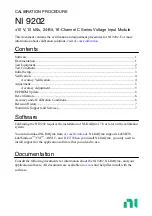
Pag. 124 di 152
10.6 Type 8 files
Type 8 files are dedicated to the storage of
Tariff Maximum Demands
for time of use tariffs.
They are strictly related to type 6 files, e.g. calendar files, that determine the tariff changeover and the
repartition of Maximum demand into groups (one group for each tariff).
For further information please refer to “
Type 6 files”.
Each record of the report file is matched to a given tariff. It contains all the Maximum demand values
supported by the instrument.
10.6.1 Service configuration
This service makes use of the following output variables:
Tariff Maximum Demands Service - Output variables
Name
ID
Type
Mandat.
Description
System clock
UTC
FF80h
Unix Timestamp (ID 06h)
Unix Tim offset (ID 07h)
Unix Tim DST flag (ID 08h)
Date (ID 09h)
Time (ID 0Ah)
Date/Time (ID 0Bh)
System clock, UTC
System clock
WALL TIME
FF81h
Unix Timestamp (ID 06h)
Unix Tim offset (ID 07h)
Unix Tim DST flag (ID 08h)
Date (ID 09h)
Time (ID 0Ah)
Date/Time (ID 0Bh)
System clock, WALL TIME
Timezone name
FF82h
BYTE ARRAY(ID 05h)
ASCIIZ string
NO
Timezone name in use
Firmware version
FF83h
BYTE PAIR (ID 04h)
Unsigned integer, Unsigned integer
NO
Firmware version in use
(Major version, Minor version)
Slave ID
FF84h
WORD (ID 01h)
(Unsigned integer)
NO
Instrument slave ID (Modbus)
Serial number
FF85h
DOUBLEWORD (ID 02h)
(Unsigned integer)
NO Instrument
serial
number
Timezone index
FF87h
WORD (ID 01h)
(Unsigned integer)
NO
Timezone index in use
Tariff
08A0h
WORD (ID 01h)
(Unsigned integer)
YES
Tariff index (1-n)
6
It specifies if the variable is, or not, mandatory for service start-up and operation.
7
Setting of at least one time stamp variable is required for service start up.
















































